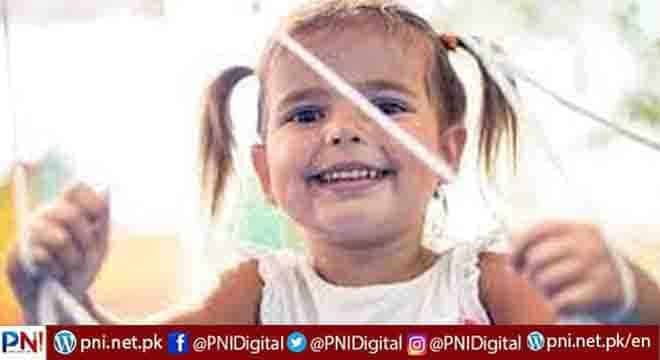By Masooma Zehra Miyan
ISLAMABAD, Apr 30 (APP): April is the month of autism awareness and though the condition has existed for years, many people are still unaware of it, particularly in developing countries like Pakistan.
According to the Autism Society of Pakistan (ASP), there are over 400,000 children on the autism spectrum, much more than the figure denotes, not counting the adults who may have it.
Autism Spectrum Disorder (ASD) is a lifelong neurological condition that affects a person’s interaction with the world. An umbrella term encompassing four types; reflects the developmental difficulties these people face.
Governments of various nations have taken various initiatives to facilitate the autism community. While the rest of the UK is gradually adopting the laws made for autistic individuals, the British government introduced the Autism Act in 2009 to help people on the autism spectrum integrate into the workplace and society. It has been coordinating with the National Autistic Society, UK’s most significant charitable organisation, to make this process smoother and better.
The act is updated frequently to improve the quality of facilities provided to these persons. NAS, on its own, not only offers diagnostic services and treatments to the children on ASD but also to the autistic adults. It also confers residential accommodation, workplace integration, skill development and others.
Pakistan, on the contrary, is under dark clouds of ignorance marked by the lack of awareness regarding this condition the society has.
To tackle these unfavourable circumstances, many local families founded their institutes to lend a hand to this overlooked community. Autism Resource Centre Rawalpindi (ARCRWP), Zam Zam Autism Centre and Autism Point are a few examples of this.
According to ASP, the resources available nationwide to autistic people are unsatisfactory.
Co-Founder ARCRWP Ghazal Nadeem told APP, “There is a lack of specialists and institutes working for this purpose in Pakistan”.
“No bill has been passed to cater to the needs of these innocent kids and their families. We all [the families] are supporting each other with no support [from the concerned quarters]”, she added.
It is pertinent to mention that article 25 of the constitution grants equal status to these individuals with others. They are also entitled to free compulsory education like their neurotypical counterparts, referring to Article 25A.
But what about the right to work? If we shift our focus to Article 18 of our constitution, we learn that this right also has been granted, allowing them to participate in any legal trade they may choose to.
On a similar note, articles 24 and 27 of the UN Convention on the Rights of Persons with Disabilities and UN SDG 4.5 and 8.5 bind the nation-states to give these same rights.
Although there are other prerogatives the constitution ensures, their implementation is almost negligible. There has been no provision for free compulsory education till now, even for the neurotypicals and the facilities to ensure inclusivity and equality are lagging far behind.
While these NGOs cater to the needs of children, there is no solution for adults.
Pakistan faces a myriad of issues concerning this area. There is no law to bound schools and workplaces for accessibility and inclusion. Then what is the way forward, one may wonder?
A comprehensive plan with input from the individuals on ASD and their loved ones is essential. A law that binds all academic and professional organisations to ascertain inclusivity within their premises is the much needed first step from the State, besides a massive public awareness campaign to promote understanding of this neurodiversity.
However, it doesn’t end here, to fill the gaps involving stakeholders, such as the resource centres to train therapists for effective treatment and diagnosis, is necessary. For this purpose, standardised assessments to diagnose both children and adults are the key.
Furthermore, scholarships in several fields, a welfare system for these neglected souls, and accommodation schemes for autistic adults are other interconnected strategies that can improve the quality of their lives.
In a world gripped by hate and prejudices, these warriors have been bracing the storms alone with none of us batting an eye to the damage our sheer negligence is inflicting upon them.
If not now, then when will we learn to accept our differences and support each other genuinely?
Follow the PNI Facebook page for the latest news and updates.









